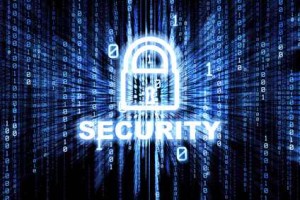
According to a defense outlook report by Deloitte, the wealthier the nation, the more at risk a country is of cyber attack. The US, Japan, Britain and South Korea have been identified as some of the biggest targets. Not to mention, the recent cyber attack on the federal government may have exposed as many as 4.2 million current and former federal employees including investigations for security clearances and other job background checks.
Moreover, In a report sponsored by Intel’s cybersecurity solutions provider McAfee, called “Net Losses – Estimating the global cost of cybercrime” released by the Centre of Strategic and International Studies (CSIS), it was estimated that cybercrime costs businesses $400 billion worldwide. “Cybercrime damages trade, competitiveness, innovation, and global economic growth. For developed countries, cybercrime has serious implications for employment. The effect of cybercrime is to shift employment away from jobs that create the most value.”
When you own a small business, you may think you aren’t a target for a cyber attack. However, this type of assumption can result in a huge mistake if you have not taken the proper precautions to safe-guard your business. The fact is that more and more criminals are targeting smaller businesses, simply because they have not implemented the proper safeguards to keep their business protected from these potential cyber attacks. Check out the eight tips below to help safeguard your data.
Create an internal policy
Do you know what the biggest cyber security risk is for your business? There are a number of business owners who are surprised to learn that it is their employees. In many cases, criminals will get inside a network thanks to one of your employees clicking on a line in an email or using a poor password. It is important to stay updated on the latest scams that are going around and to keep your employees aware of the scams, as well.
While staying educated is the first element, you also need to check with the person who set up the business server to ensure the right protections are in place.
Learn from the mistakes of others
Chances are you hear of various cyber intrusions and disclosures of private data every day. This can lead to quite large financial losses. However, if you take a cue from those who have had to learn the hard way, you can make more informed decisions regarding similar cyber hacking issues.
Keep your computers updated
One of the simplest strategies, you can use immediately, is ensuring that your entire network is up to date. This means paying attention all notifications regarding updates to your operating systems, anti0virus software, web browsers and firewalls. Ignoring any of these essentially leaves cracks in your defense system.
Use cloud services
Many businesses save both money and time by using cloud services for handling their application needs and data storage. It can often be cost-prohibitive for smaller businesses to purchase, manage and maintain server farms. Yet, you can get the same level of computing for minimal month subscription costs by using the cloud. Of course, stick with only the most reputable companies.
Know what not to do
Adding firewalls and filters to a platform that is already insecure is basically the same as attaching a padlock to a screen door. Eventually, cyber criminals will locate the vulnerability. You need to discover where the major problems are, and then have a professional fix the issue. This is the only way that you can ensure that your system is going to remain safe.
Increase employee awareness
This is one of the most cost-effective methods of preventing a cyber attack. Today, only 58 percent of U.S. mid-size companies train employees on cybersecurity. It is critical to understand that cyber attacks can occur just by a cyber criminal having access to an employee laptop. This is why it’s imperative for your company to implement privacy training.
Create strong passwords and change them frequently
There are a number of security experts that state that you should never use the same password for all of your accounts. Doing this is just asking for all your personal information to be stolen. Try to create diverse passwords that combine numbers, symbols and other factors to ensure it is safe and secure. You should also ensure that passwords are changed every few months. This is true for you, as well as your employees.
Hire a security expert
One of the best ways for you to discover if there are any holes or security risks present in your infrastructure is to hire a security consultant. While this may sound like a significant expense, it is actually an invaluable service that may help you to save quite a bit of money and frustration down the road. There is a good reason that large companies, such as Facebook, have created programs that reward those who investigate the security of a website. These are fondly referred to as “ethical hackers” and can help you see where any security risks may lurk in your company.
The fact is that cyber criminals are becoming increasingly advanced with each passing day. They are finding new ways to infiltrate business infrastructures and stealing sensitive data that can cost upwards of billions in losses per year. When you take the time to learn about the latest issues present and the risks that may affect your company, you become better prepared to protect your organization and intellectual property. If you are unsure of how to get started, then hiring a professional security expert is the first step. The objective is to focus on the cost of losing your data as opposed to paying for a professional and highly-beneficial assessment. Do all of this now, because tomorrow may be too late.

